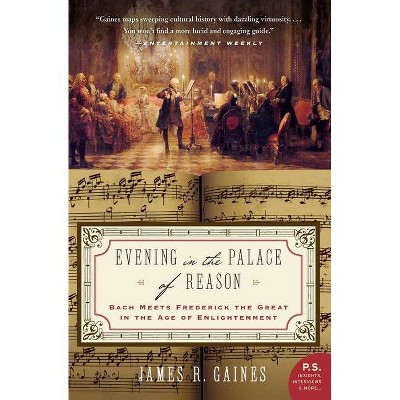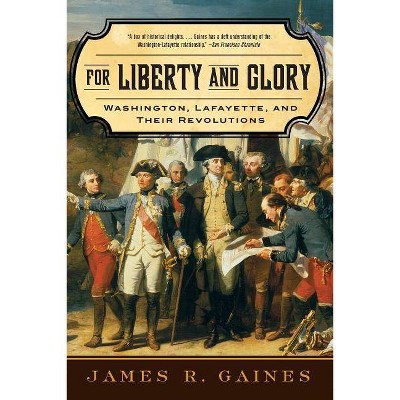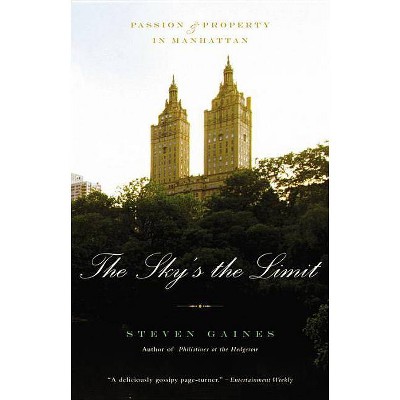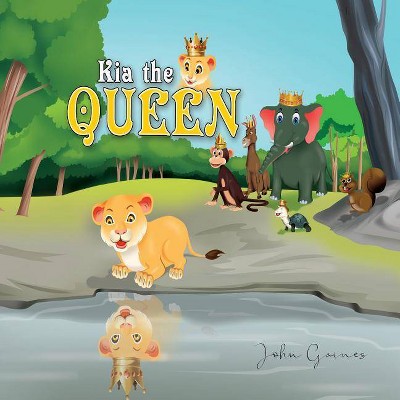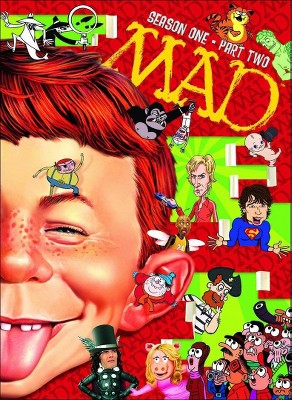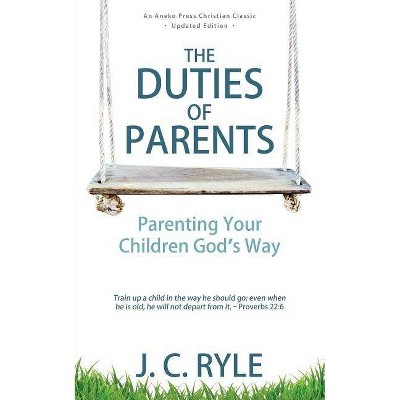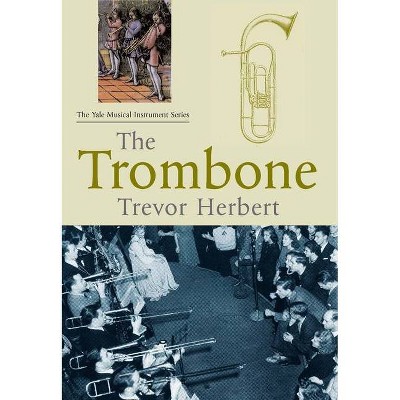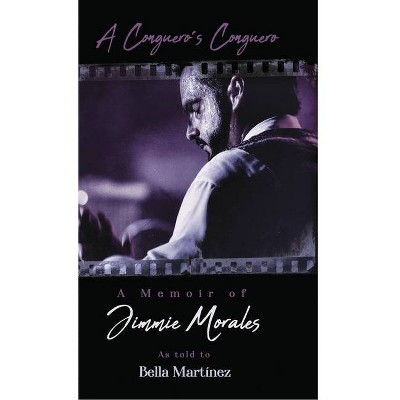Evening in the Palace of Reason - by James Gaines (Paperback)
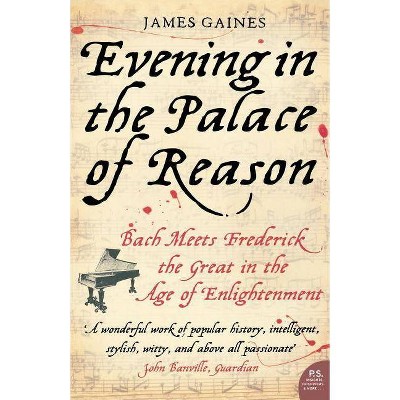
Similar Products
Products of same category from the store
Product info
<p/><br></br><p><b> About the Book </b></p></br></br><p>In one corner, a godless young warrior, Voltaire's heralded 'philosopher-king', the It Boy of the Enlightenment. In the other, a devout if bad-tempered old composer of 'outdated' music, a scorned genius in his last years. The sparks from their brief conflict illuminate a turbulent age.</p><p/><br></br><p><b> Book Synopsis </b></p></br></br>In one corner, a godless young warrior, Voltaire's heralded 'philosopher-king', the It Boy of the Enlightenment. In the other, a devout if bad-tempered old composer of 'outdated' music, a scorned genius in his last years. The sparks from their brief conflict illuminate a turbulent age. Behind the pomp and flash, Prussia's Frederick the Great was a tormented man, son of an abusive king who forced him to watch as his best friend (probably his lover) was beheaded. In what may have been one of history's crueler practical jokes, Frederick challenged 'old Bach' to a musical duel, asking him to improvise a six-part fugue based on an impossibly intricate theme (possibly devised for him by Bach's own son). Bach left the court fuming, but in a fever of composition, he used the coded, alchemical language of counterpoint to write 'A Musical Offering' in response. A stirring declaration of faith, it represented 'as stark a rebuke of his beliefs and world view as an absolute monarch has ever received, ' Gaines writes. It is also one of the great works of art in the history of music. Set at the tipping point between the ancient and the modern world, the triumphant story of Bach's victory expands to take in the tumult of the eighteenth century: the legacy of the Reformation, wars and conquest, the birth of the Enlightenment. Brimming with originality and wit, 'Evening in the Palace of Reason' is history of the best kind - intimate in scale and broad in its vision.<p/><br></br><p><b> Review Quotes </b></p></br></br><br><p>'Gaines has a keen eye for colour, and enjoys himself greatly regaling us with anecdotes... 'Evening in the Palace of Reason' is a wonderful work of popular history; intelligent, stylish, wryly witty, serious yet never solemn, and above all passionate in its celebration of a great composer.' John Banville, Guardian</p><p>'An intriguing book.' Sunday Times</p><p>'The author presents us with a piece of theatre that is witty, instructive and often bizarre.' Independent on Sunday</p><p>'Gaines' style is readable, crisp and compelling. He is an excellent guide: informed, unpretentious and frank... A story told with wit, knowledge, the odd flight of fancy and love.' Times Literary Supplement</p><br><p/><br></br><p><b> About the Author </b></p></br></br><p>Jim Gaines was the first editor in chief of People magazine, as well as the editor of Time magazine. This is his first book. He lives in Paris with his family.</p>
Price History
Price Archive shows prices from various stores, lets you see history and find the cheapest. There is no actual sale on the website. For all support, inquiry and suggestion messagescommunication@pricearchive.us
